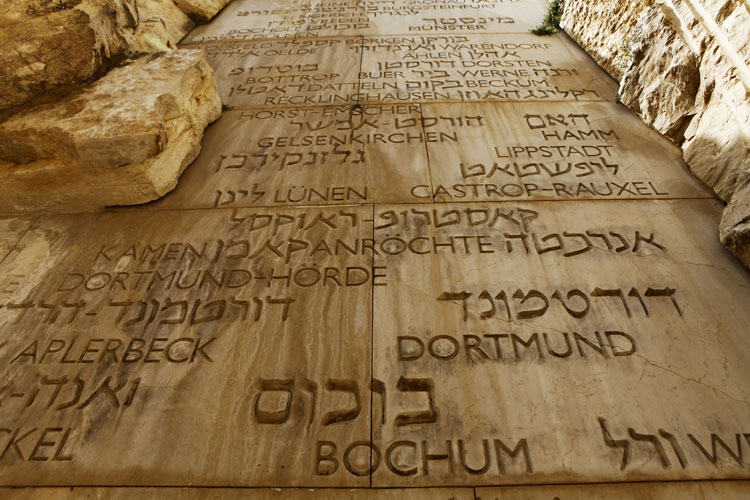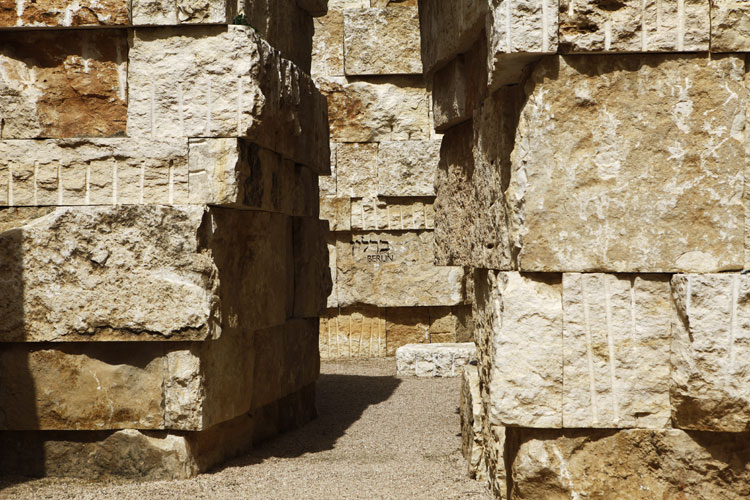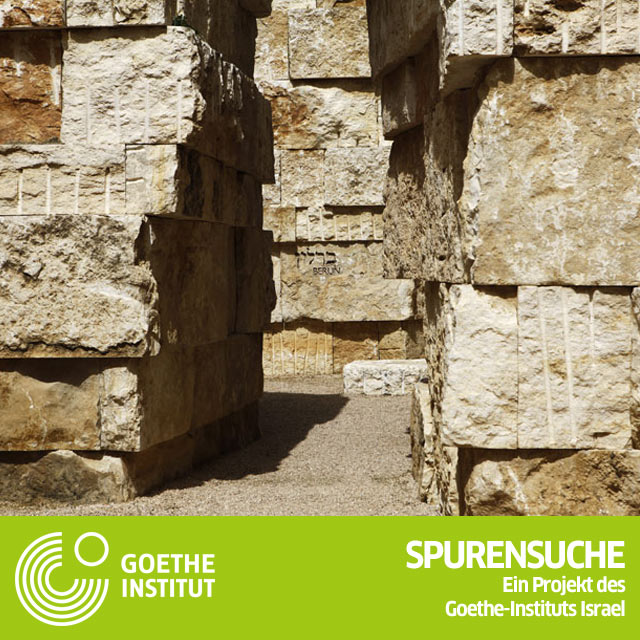Israel:Yad Vashem: The Valley of the Communities - Jerusalem: Unterschied zwischen den Versionen
K (Newline insert before newBox via script) |
|||
| (Eine dazwischenliegende Version von einem anderen Benutzer wird nicht angezeigt) | |||
| Zeile 3: | Zeile 3: | ||
[[Datei:ISRAEL_13_yad-vashem_3.jpg|750px|thumb|left|© Goethe-Institut]] | [[Datei:ISRAEL_13_yad-vashem_3.jpg|750px|thumb|left|© Goethe-Institut]] | ||
| − | It took nine years for them to complete this impressive monument landscape. It has been open to the public since 1992 and covers an area of around two and a half acre. It is a memorial to the Jewish communities that were completely or partially destroyed during the Shoah, of which there were more than 5000. The names are engraved in Hebrew and Latin script on 107 huge sandstone blocks. They commemorate these communities, which had frequently existed for several hundred years and represented an entire world to their members. An entire culture has become lost with their destruction. In most cases the only thing still left of them is the name. | + | It took nine years for them to complete this impressive monument landscape. It has been open to the public since 1992 and covers an area of around two and a half acre. It is a memorial to the Jewish communities that were completely or partially destroyed during the Shoah, of which there were more than 5000. The names are engraved in Hebrew and Latin script on 107 huge sandstone blocks. They commemorate these communities, which had frequently existed for several hundred years and represented an entire world to their members. An entire culture has become lost with their destruction. In most cases the only thing still left of them is the name. |
| − | + | {{#newBox:}} | |
| − | |||
{{#Audio: http://lbs.goethe.de/mediawiki/images/2/24/ISRAEL_13_yad-vashem_deutsch.mp3 |Report about Yad Vashem (German)|[[Datei:ISRAEL_MP3_013.jpg]]||Yad Vashem: The Valley of the Communities - Jerusalem}} | {{#Audio: http://lbs.goethe.de/mediawiki/images/2/24/ISRAEL_13_yad-vashem_deutsch.mp3 |Report about Yad Vashem (German)|[[Datei:ISRAEL_MP3_013.jpg]]||Yad Vashem: The Valley of the Communities - Jerusalem}} | ||
{{#Audio: http://lbs.goethe.de/mediawiki/images/1/16/ISRAEL_13_yad-vashem_hebrew.mp3 | Report about Yad Vashem (Hebrew)|[[Datei:ISRAEL_MP3_013.jpg]]||Yad Vashem: The Valley of the Communities - Jerusalem}}{{#newBox:listbox}} | {{#Audio: http://lbs.goethe.de/mediawiki/images/1/16/ISRAEL_13_yad-vashem_hebrew.mp3 | Report about Yad Vashem (Hebrew)|[[Datei:ISRAEL_MP3_013.jpg]]||Yad Vashem: The Valley of the Communities - Jerusalem}}{{#newBox:listbox}} | ||
| + | ==More== | ||
| + | * [[Israel:Symbols of destruction | Symbols of destruction]]{{#newBox:listbox}} | ||
==Related links== | ==Related links== | ||
Aktuelle Version vom 4. September 2020, 16:29 Uhr
The Yad Vashem memorial site complex features a historical museum, various exhibition galleries, a central archive, a research centre containing Holocaust documentation, a study centre, the Avenue of the Righteous and the “Valley of the Communities” (Hebr. Bik`at haKehilot).
It took nine years for them to complete this impressive monument landscape. It has been open to the public since 1992 and covers an area of around two and a half acre. It is a memorial to the Jewish communities that were completely or partially destroyed during the Shoah, of which there were more than 5000. The names are engraved in Hebrew and Latin script on 107 huge sandstone blocks. They commemorate these communities, which had frequently existed for several hundred years and represented an entire world to their members. An entire culture has become lost with their destruction. In most cases the only thing still left of them is the name.
German Traces in Israel
A project by the Goethe-Institut Israel
Author: Gisela Dachs
Photos: Noa Ben-Shalom



